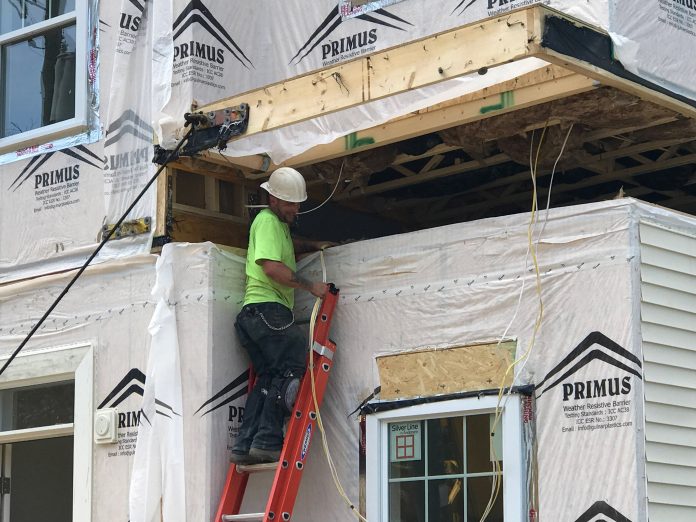InnovaLaB Finds Breakthrough in Land Development with Modular Housing
InnovaLaB, the former Kent County Land Bank, has 125 home-ready parcels in the city of Grand Rapids with big plans to develop the properties with modular homes, three of which were set just last week.
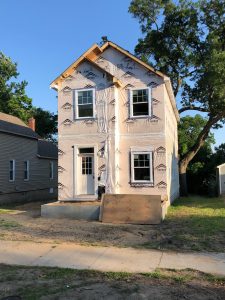
“The city has been working feverishly to solve not just the affordable housing situation, but the entire lack of housing in the city,” InnovaLaB Executive Director David Allen said.
Allen said Grand Rapids is among the U.S.’s least favorable cities in terms of housing availability per capita, rivaling other difficult to maneuver housing markets such as Seattle and Eugene, Ore.
Grand Rapids at any given time, Allen said, has about 100 homes for sale, priced from zero to $5 million. Homes deemed affordable, available for something near $200,000, are all the more difficult to find.
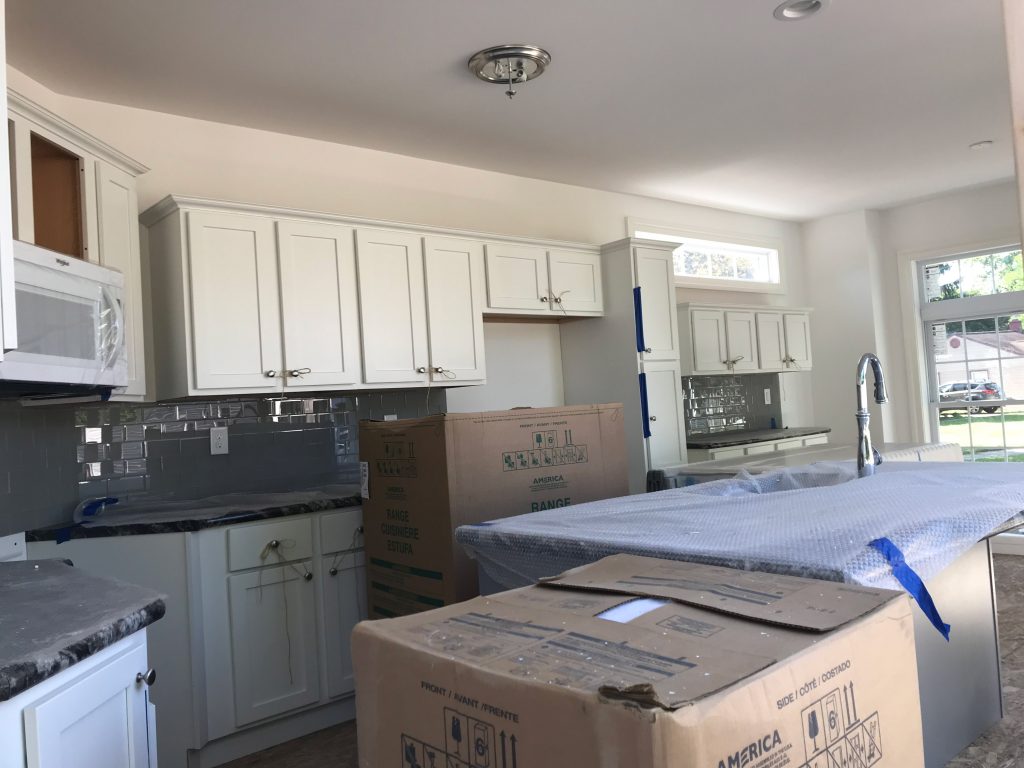
How InnovaLaB Found Modular Housing
Solving these availability and affordability problems is what land banks do. And in recent conversation with Grand Rapids Interim City Manager Eric DeLong and Universal Forest Products CEO Matt Missad, one seemingly magic phrase was uttered to Allen: “You should look into modular, it’s not what you think it is.”
Allen agreed it was worth a look, and afterward reached out to Champion Homes’ Joe Kimmel, VP for the northeast region, an invitation was extended for Allen and his colleagues to attend the Louisville Manufactured Housing Show in January.
“Let me tell you, I was a skeptic,” Allen said of his approach to The Louisville Show. “I did not believe I would like what I found. I was telling myself all the way there, ‘You’re not going to like this’ and ‘I don’t think this is going to work’. Well, I was wrong. If I had a scale of 1-10, what I found was a 12. The homes I saw on display really exceeded my expectations and entirely changed my mind about what was possible.
“The quality, the design, everything, just so impressive,” he said.
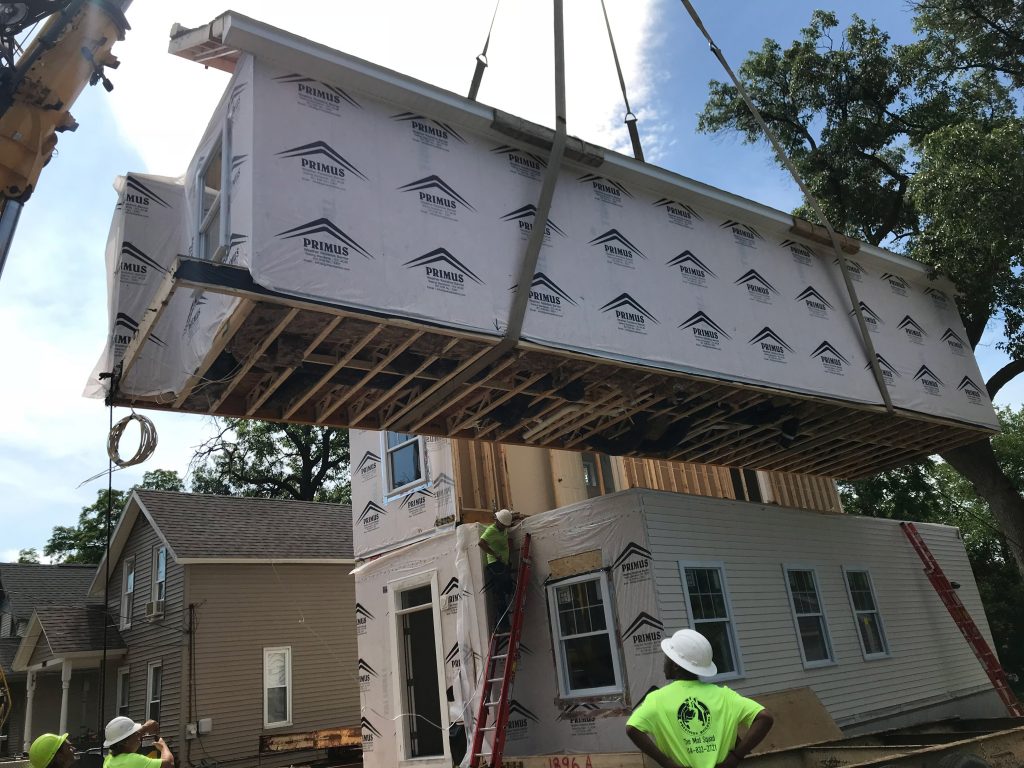
The Change Began at The Louisville Manufactured Housing Show
Champion Modular had just re-launched its popular brand All-American Homes, and already was churning out new models at its Strattanville, Pa., plant. The model home they set up was a hit at the show, and Allen came away from Louisville feeling he had an answer for the Grand Rapids housing market.
So , through weekly meetings in the spring with Champion, including with the company’s lead designer Roberto Kritzer, Allen landed on 13 new home designs he felt would provide a good fit for every one of those 125 municipal lots and many others county and statewide.
“We came up with the three unique designs specific to start this project, and those are the three homes we just put in,” Allen said.
In July, InnovaLaB had an entry level modular home put on Cooper Avenue SE, a mid-price home that sits on Herrick Avenue NE and a more high-end home for Sigsbee Street SE.
All three homes were ordered from Champion Modular’s plant in Strattanville, Pa., and all arrived ready to set on their foundations within four weeks. Each home came in at about 70 percent the cost of what its site-built counterpart would be.
The median price per square foot in the U.S. is $148, and in city of Grand Rapids it’s about $129 per square foot and $142 per square foot median in the metro area.
DeLong, the interim city manager, said he had some understanding of modular housing through his brother’s professional experience, and understood that the product had taken great strides in quality, design and aesthetics.
“I felt that modular was a viable solution to the affordable housing problem here, and I’m pleased to see this pilot program going so well,” DeLong said. “The land bank has been really sensitive to the quality of design and how a home will fit the neighborhood. I drove by the 1010 Cooper house, and I think it looks really great, and it’s an affordable option. That’s something that’s hard to do, and that’s is being done. InnovaLaB has launched a pilot with a lot of promise.”
How Buyers Can Get In a New Modular Home
InnovaLaB has plans to set up a modular home center inside their Grand Rapids offices so interested buyers can go get a better feel for the product and pick out home amenities — from cabinetry styles to countertop materials and more.
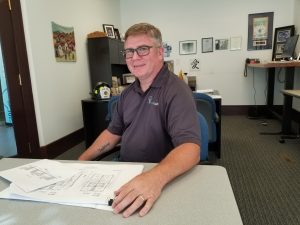
Potential buyers can treat these new modular homes as they would any other home for sale. When completed and priced, the homes will be listed on the Grand Rapids MLS and open for viewing and offers. However, a selection of the lots being used were supplied to InnovaLaB by the city of Grand Rapids with a qualification that buyers for a home on those properties are confirmed to earn at or below the area’s median income, which currently is about $62,000 annually for the household.
Allen said if developers — whether in the for profit or non-profit sector — can make the math work for the land, the only obstacle is people’s general perception of factory-built homes.
“There is a lot of stigma with modular and manufactured homes, and we’re taking on that stigma starting with modular, and we do have plans moving forward for manufactured housing as well,” Allen said. “There are places of need where manufactured is the solution, too, and those are programs we will be talking more about at a later time.
“But, with what we’re doing with modular right now, I think we’ll see rapid progress,” he said. “We’ve caught the attention of the governor, who is asking for regular updates. And similar infill sites are being identified throughout the state for this purpose.”
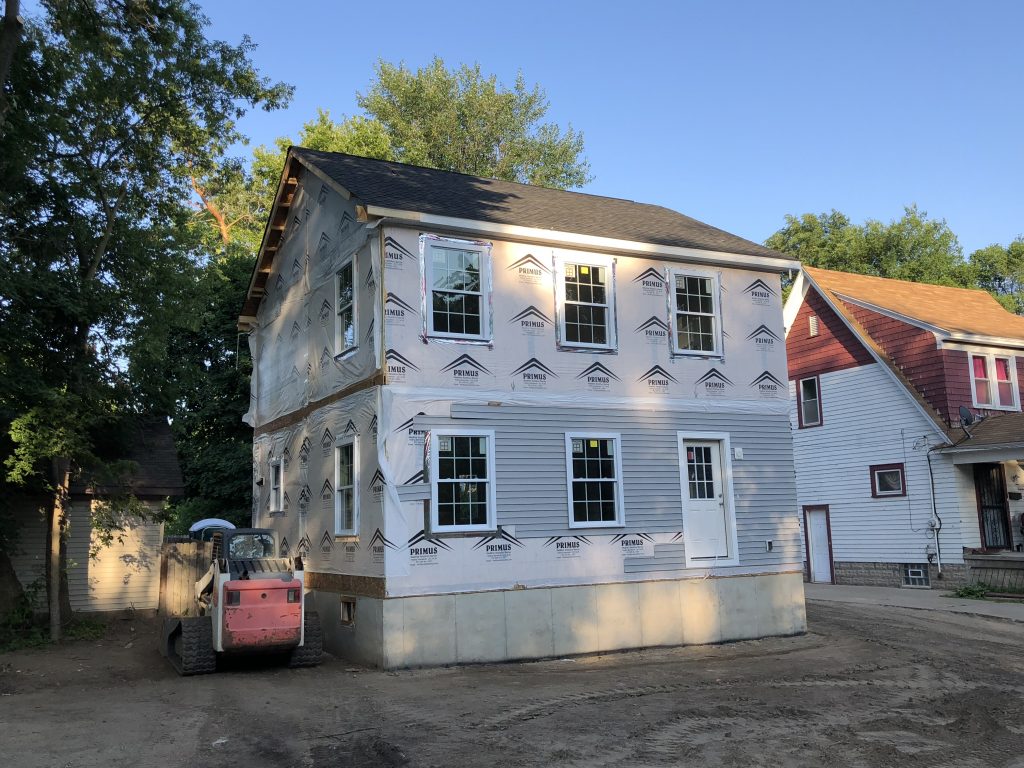
The Word is Spreading About Modular for City Infill
InnovaLaB had a North Dakota expert on home siting and set up come in to work with a local team while dropping the new modular homes.
“It was great. At first it was entirely the North Dakota team doing the work and slowly our local guys got in there and were lending a hand,” Allen said. “By the the last home was set they were working 50/50, side by side. It was really great to see.”
Allen said the early success in Grand Rapids can inform similar projects in other parts of the state or country, including in Romulus, Mich. Romulus is in need of workforce housing and affordable housing to address construction and the permanent workforce needs related to a pair of distribution centers to be built.
Tim Keyes, the Romulus Economic Development Director, said the two distributions centers — for Amazon and Penske — will produce more than 2,000 jobs.
“We’ve had a lot of conversation internally about workforce housing,” Keyes said. “I’d love to see what my neighbors to the west are doing. It seems like a great concept and really could help us in making decisions for our housing needs.”

